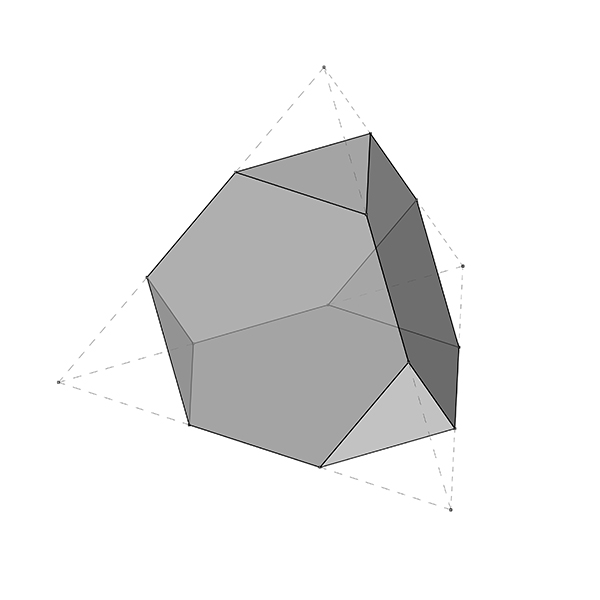Modeling and Unrolling Truncated Tetrahedron
Truncation in mathematics and geometry refers to cutting off parts of a shape, typically the vertices, edges, or other extremities, to create a new modified figure. This process is often used with polygons, polyhedra, or functions. A truncated tetrahedron is a polyhedron we can derive from a regular tetrahedron by truncating (cutting off) its four vertices. This process creates a new shape with additional faces while maintaining its symmetry. In this tutorial video, I am modeling and unrolling a truncated tetrahedron in Rhinoceros software using basic commands. I studied the same topic in another post here, here, and here before. This time, this beautiful polyhedron is a topic of our Architectural Geometry class.

In this video series, I demonstrate in-class exercises from the Architectural Geometry course I teach to first-year students. Using Rhinoceros software, we explore Euclidean constructions, basic drawing, and transformation commands. In addition, we study introductory fractals, regular and semi-regular tessellations, patterns, modeling, and unrolling polyhedra. These short drawing exercises are beneficial for junior architects, interior designers, industrial designers, and others interested in related disciplines. I’ll be posting exercises weekly on my blog and other platforms. So, today’s exercise is about modeling and unrolling truncated tetrahedron.
The software used in this course is Rhinoceros 3d (www.rhino3d.com). However, if you want to find out more and see the whole list of this video series, you can check my YouTube channel at www.youtube.com/@designcodingnet and my blog at: www.designcoding.net/. You can also check my Instagram page at www.instagram.com/designcodingnet/. The music of this video is ‘Beautiful Oblivion’ by Scott Buckley (CC-BY 4.0). www.scottbuckley.com.au








